TABLE OF CONTENTS
Written by Megan Dempsey
May 20, 2025
Can Babies Have Herbs & Spices?
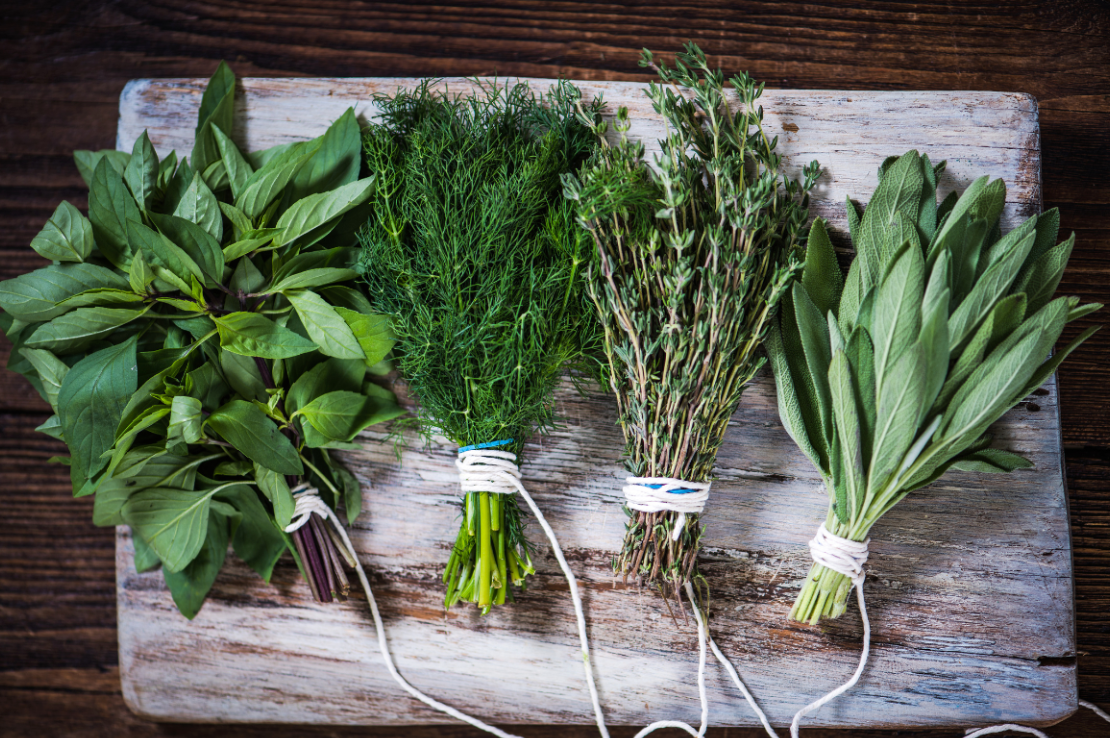
When you’re starting solids with your little one, it’s natural to wonder: Can babies have spices? Can babies have herbs? Good news — in most cases, yes! Gently introducing many foods with herbs and spices can add delicious flavor to your baby’s meals and encourage adventurous eating habits early on.
Of course, it's important to introduce new tastes carefully, using mild seasonings in small amounts and watching for any adverse reactions. Here's what you need to know about safely adding a little extra flavor to your baby's diet.
Is Your Baby Ready for Herbs and Spices? Here’s When to Start
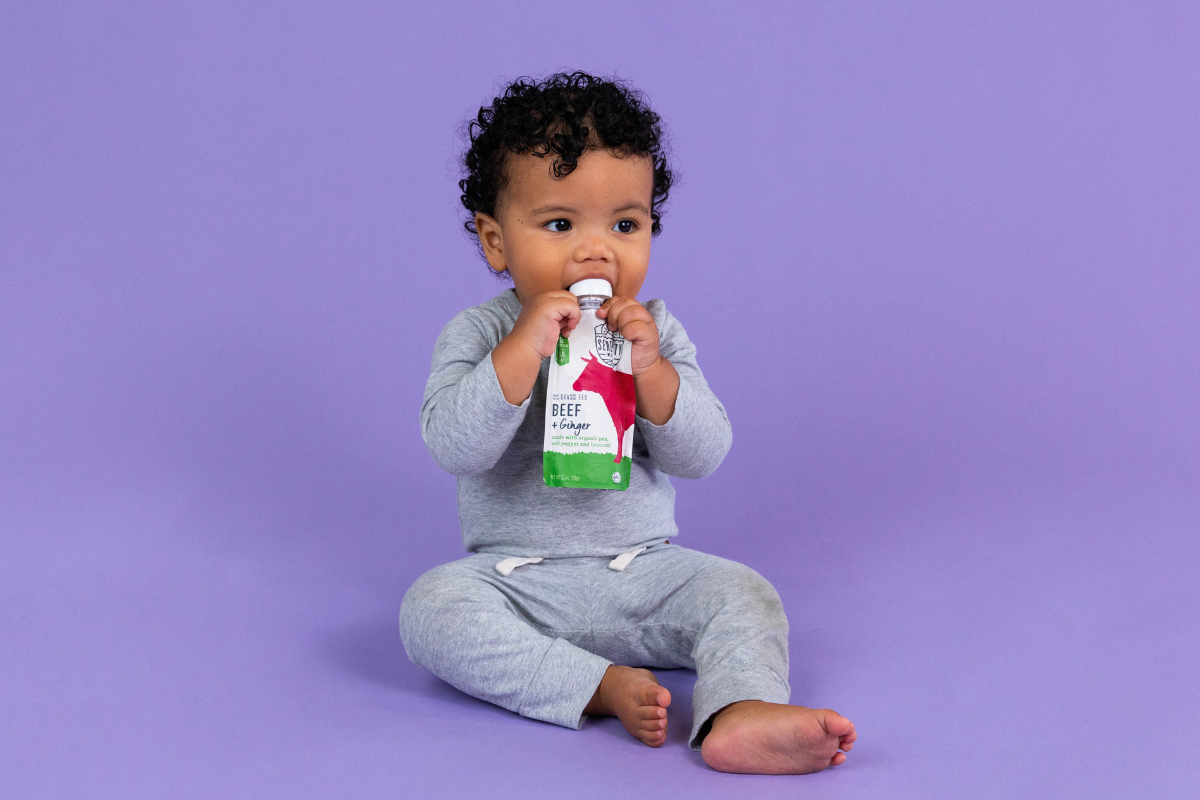
Most babies can begin trying herbs and spices once they’ve started solid foods—typically around 6 months old. After a few single-ingredient foods have been safely introduced and tolerated, it’s safe to start experimenting with flavor.
Introducing herbs and spices early can support your baby’s development and help them enjoy a more varied, nutritious diet over time.
Benefits of Adding Herbs and Spices to Baby Food
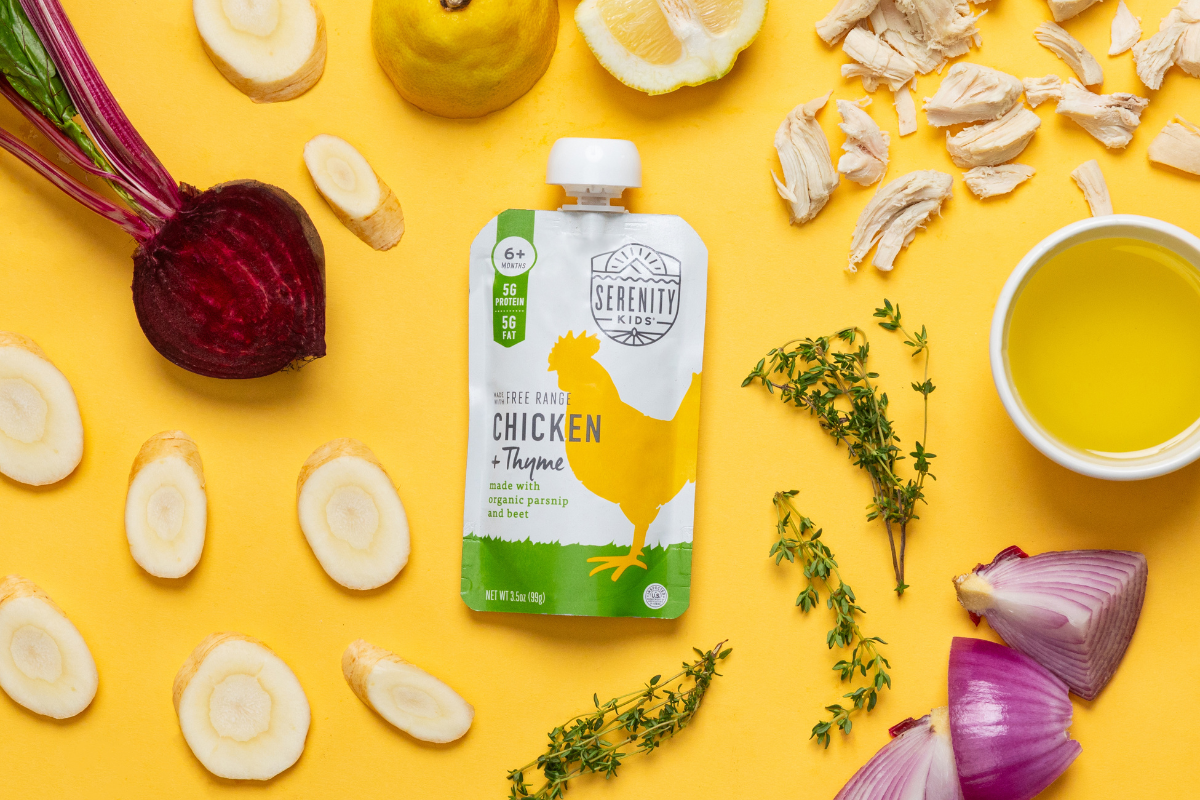
Expands Baby’s Palate Early
Exposure to new tastes in small amounts can encourage your baby to become an adventurous eater later in life. Babies who try a wide variety of flavors may show less pickiness as toddlers and beyond. Here's an informative deep-dive into The Flavor Window and why it's important.
Supports Digestion and Immunity
Certain herbs and spices, like turmeric, basil, cumin, and ginger, are known for their digestive properties. In tiny amounts, they may contribute subtle health benefits while making baby’s meals more flavorful.
Encourages Natural Flavor Without Salt or Sugar
Instead of relying on salty foods, added sugar, or processed flavors, herbs and spices add excitement to baby food naturally. This aligns perfectly with a healthy start, setting the foundation for a diet rich in nutrients and low in unnecessary additives.
Can Babies Have Spices?
Yes—babies can have spices starting around 6 months, but the key is to start gradually with new tastes.
Yes—But Start Mild and Simple
Begin by offering tiny pinches of mild spices like cinnamon, turmeric, cumin, and garlic powder once your baby is tolerating solid foods well. Always serve spices without additional salt or sugar and use small amounts to avoid overwhelming your baby's sensitive taste buds.
Spices to Try First
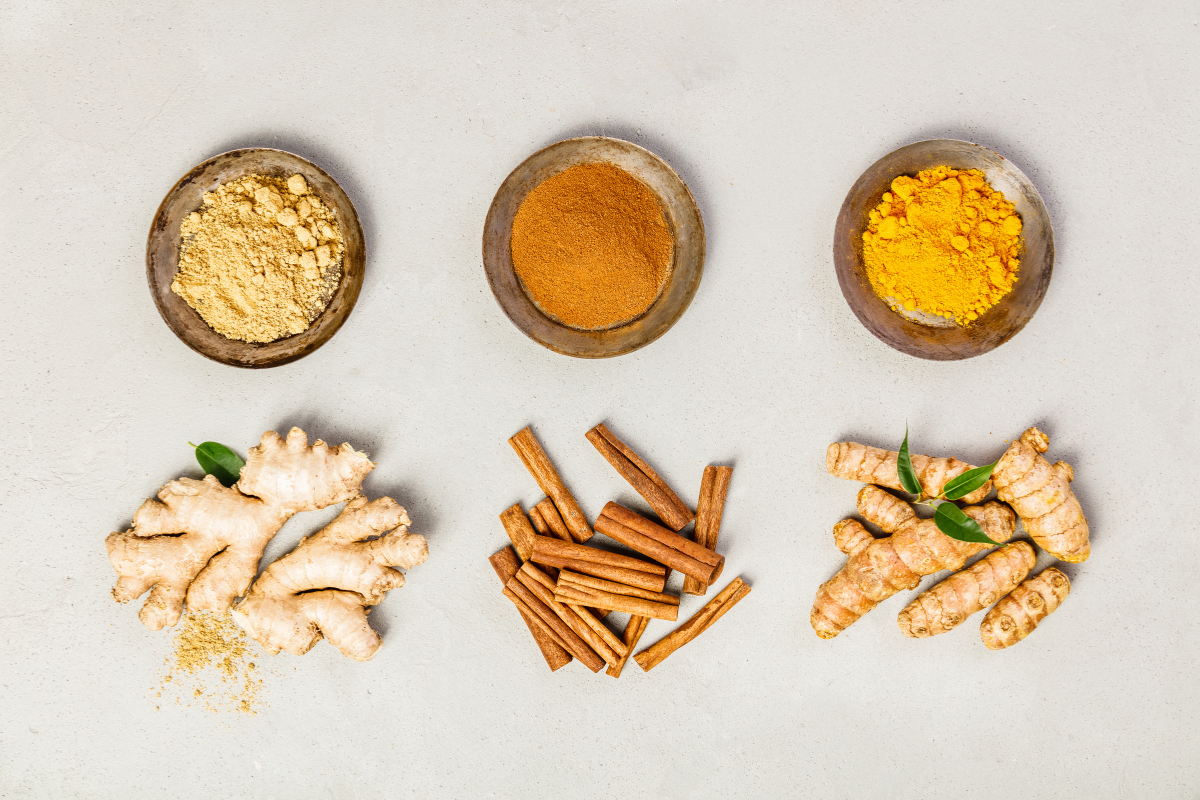
Start with:
-
Cinnamon – pairs well with butternut squash, carrots, and sweet potatoes
-
Ginger – adds warmth and brightness to both meat and veggie purees
-
Cumin – complements sweet potatoes and meats
-
Turmeric – adds rich flavor to just about any meat or veggie (see the benefits of turmeric in baby food)
-
Mild paprika – adds soft warmth without heat
Pair spices with simple foods to help your baby enjoy a variety of flavors naturally.
Spices to Avoid (for Now)

Hold off on spicy foods like:
-
Hot chili powder
-
Cayenne pepper
-
Black pepper (in larger quantities)
These spices can irritate your baby’s delicate digestive system and cause an unpleasant surprise when trying new foods.
Can Babies Have Herbs?
Yes! Herbs like basil, parsley, and thyme are excellent additions to your baby’s meals.
Fresh vs. Dried Herbs for Babies
Both fresh and dried herbs have their place:
-
Fresh herbs (like basil, cilantro, and dill) are ideal for blending into purees.
-
Dried herbs (like oregano and thyme) can gently infuse flavor when cooked into baby food.
Aim to choose organic whenever possible.
Baby-Friendly Herbs to Start With
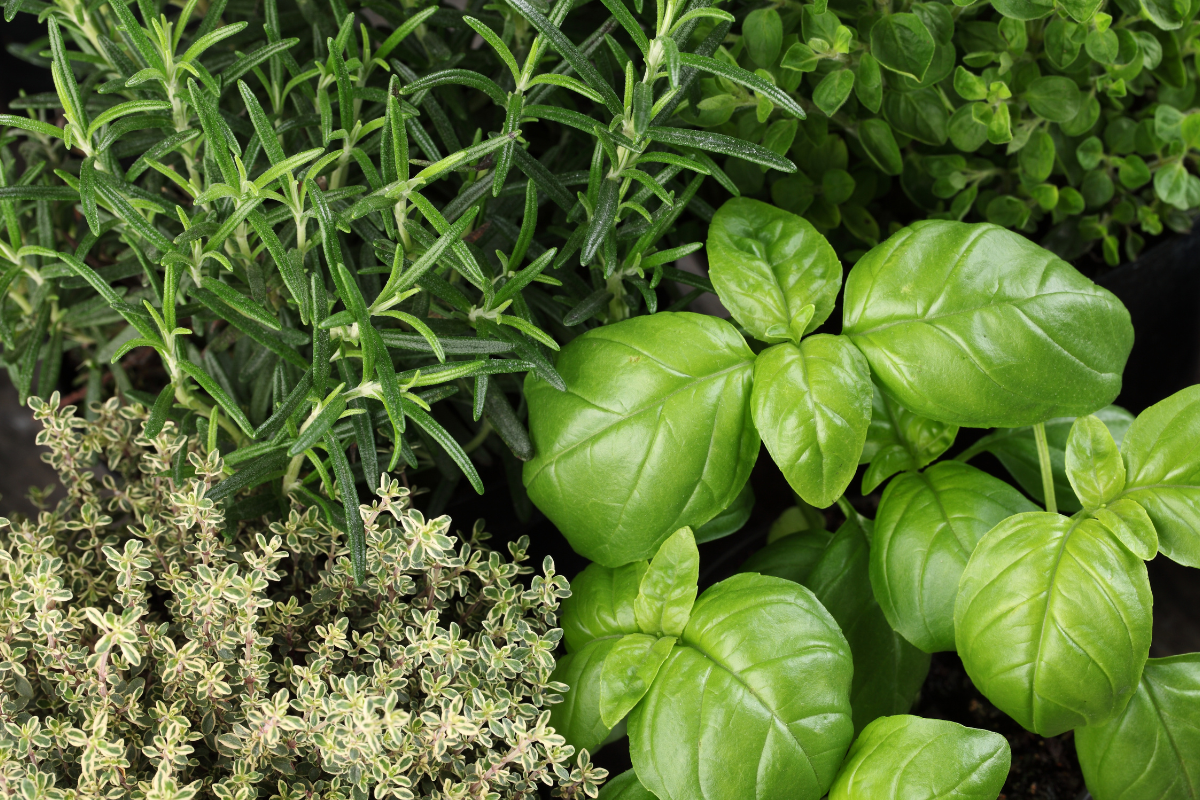
Safe, flavorful options include:
-
Basil – delicious with tomatoes or zucchini
-
Oregano – great with chicken or sweet potatoes
-
Rosemary – pairs well with root vegetables
-
Parsley – adds a fresh lift to veggie purees
-
Dill – brightens peas or carrots
-
Cilantro – fantastic with avocado or black beans
You can also find baby food options like our Chicken Tikka Masala baby food pouch or chicken Mexican stew pouch that feature gentle herb and spice blends.
How to Introduce Herbs Safely
Start small—just a sprinkle or a tiny pinch—and monitor your baby for any allergic reactions. Always introduce new flavors one at a time, following the same cautious approach you use for other new foods to monitor for any food allergies.
Easy Recipes Using Herbs and Spices
Adding a pinch of herbs or spices can turn everyday ingredients into fun, flavorful meals for the whole family. Here are a few simple ideas incorporating spices with veggies and fruits:
Cinnamon Apple Puree
-
Saute peeled apple slices in ghee, butter, or coconut oil until soft.
-
Blend with a pinch of cinnamon for a sweet, comforting treat.
Sweet Potato + Rosemary Mash
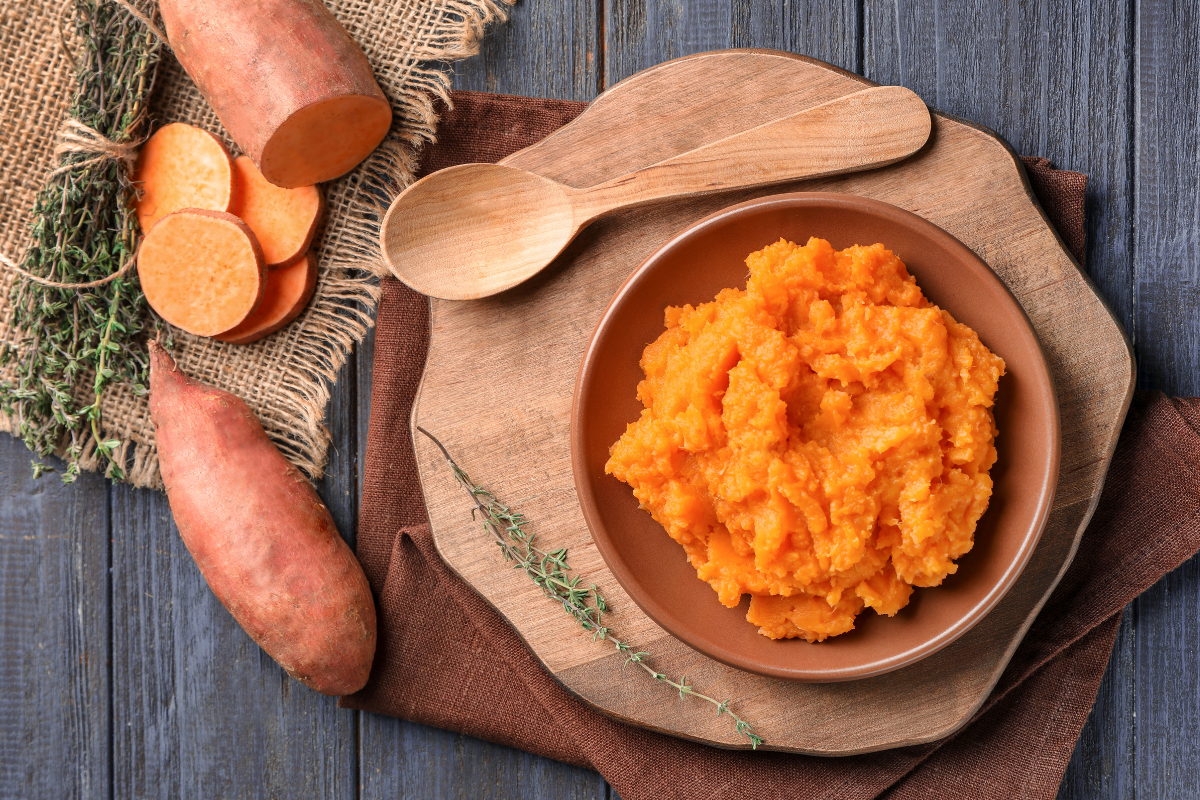
-
Roast or steam sweet potato until tender.
-
Blend with olive oil and a hint of rosemary and a touch of olive oil for a savory, aromatic puree.
Carrot + Ginger Puree
-
Steam carrots until soft.
-
Blend with olive oil and a small amount of ginger for a bright, digestion-supporting puree.
You’ll also love our ready-made turmeric chicken baby food pouch and chicken and thyme baby food if you're looking for easy, clean ingredient meals!
FAQ: Herbs and Spices for Babies
Q: When can babies start eating herbs and spices?
A: Babies can safely try mild herbs and spices once they start solids, usually around 6 months old. Always introduce new foods like herbs and spices slowly and in small amounts.
Q: Can babies have cinnamon?
A: Yes! Cinnamon is one of the best first spices to introduce. Just a small sprinkle added to purees like apple or sweet potato can add natural sweetness without added sugar.
Q: Are spicy foods safe for babies?
A: Hot and spicy foods like cayenne pepper, chili powder, and strong spice blends should be avoided early on. Stick to gentle herbs and mild spices.
Q: What are the best savory herbs for baby food?
A: Basil, parsley, rosemary, oregano, and dill are all great baby-friendly options. They add delicious flavor without needing to add salt or processed ingredients.
Q: How should I introduce herbs and spices to my baby?
A: Start with a tiny pinch added to familiar foods and monitor for any adverse reactions.
Final Thoughts: Embracing Flavor in Your Baby’s Food Journey
Introducing herbs and spices into your baby's meals is a wonderful way to foster a love of flavor, variety, and healthy foods.
Whether you’re sprinkling a little cumin on pureed sweet potatoes or trying ready-to-serve options like our Coconut Curry Baby Food with Chicken, every new taste opens up a world of flavor for your little one.
Ready to spice up your baby's meals? Mix up your own meals or explore our seasoned baby food collection.
You Might Also Like
· 1 min read · Recipes
· 7 min read · Education

















































